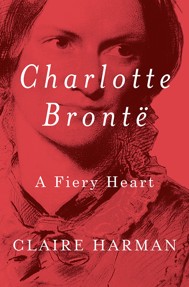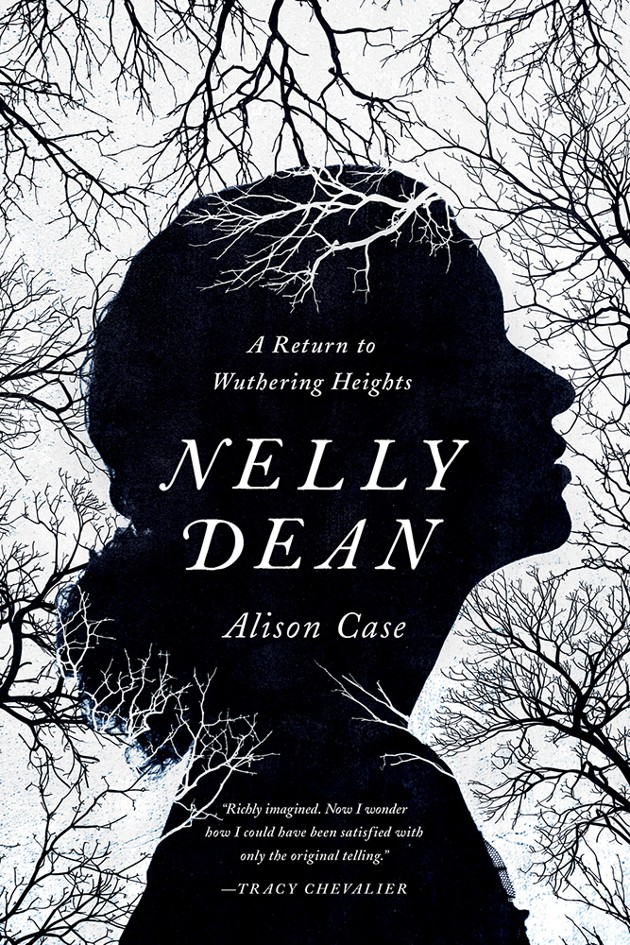The Brontës’ Secret
The sisters turned domestic constraints into grist for brilliant books.
No body of writing has engendered more other bodies of writing than the Bible, but the Brontë corpus comes alarmingly close. “Since 1857, when Elizabeth Gaskell published her famous Life of Charlotte Brontë, hardly a year has gone by without some form of biographical material on the Brontës appearing—from articles in newspapers to full-length lives, from images on tea towels to plays, films, and novelizations,” wrote Lucasta Miller in The Brontë Myth, her 2001 history of Brontëmania. This year the Brontë literary-industrial complex celebrates the bicentennial of Charlotte’s birth, and British and American publishers have been especially busy. In the U.S., there is a new Charlotte Brontë biography by Claire Harman; a Brontë-themed literary detective novel; a novelistic riff on Jane Eyre whose heroine is a serial killer; a collection of short stories inspired by that novel’s famous last line, “Reader, I married him”; and a fan-fiction-style “autobiography” of Nelly Dean, the servant-narrator of Wuthering Heights. Last year’s highlights included a young-adult novelization of Emily’s adolescence and a book of insightful essays called The Brontë Cabinet: Three Lives in Nine Objects, which uses items belonging to Charlotte, Emily, and Anne as wormholes to the 19th century and the lost texture of their existence. Don’t ask me to list the monographs.
I see no reason not to consider the Brontë cult a religion. What are Peoples of the Book, after all, if not irrepressible embroiderers of fetishized texts? The Jews have a word for the feverish imaginings that run like bright threads through their Torah commentaries: midrash, the spinning of gloriously weird backstories or fairy tales prompted by gaps or contradictions in the narratives. Midrash isn’t just a Jewish hermeneutic, by the way. You could call the Gospels a midrash on the Hebrew Bible, the lives of the saints a midrash on the Christ story, the Koran a midrash on all of the above.
Some Brontë fans—reader, I’m one of them—would happily work through stacks of Brontë midrash in search of answers to the mysterium tremendum, the awesome mystery, of the Brontës’ improbable sainthood. How did a poor and socially awkward ex-governess named Charlotte and her even more awkward sister, Emily, who kept house for their father in a parsonage on a Yorkshire moor far from the literary circles of London, come to write novels and poems that outshone nearly every other 19th-century British novel and poem by dint of being more alive? In an essay on Jane Eyre and Wuthering Heights published in 1925, Virginia Woolf bears witness to this miracle:
As we open Jane Eyre once more we cannot stifle the suspicion that we shall find her world of imagination as antiquated, mid-Victorian, and out of date as the parsonage on the moor, a place only to be visited by the curious, only preserved by the pious. So we open Jane Eyre; and in two pages every doubt is swept clean from our minds.
If Charlotte’s novels keep up a stiff wind, Emily’s one novel, Wuthering Heights, is a thunderstorm. Her characters, even the ghosts, Woolf writes, have “such a gust of life that they transcend reality.” (Like most readers, Woolf ignores the youngest Brontë sister, Anne, a lesser novelist and poet, and the Brontë brother, Branwell, a failed poet and artist turned alcoholic.) And just think, Woolf went on to write in a more famous essay, A Room of One’s Own, what Charlotte might have produced had Victorian mores not corseted her potential.

Woolf seizes on a passage in Jane Eyre in which she believes she hears Charlotte breaking out of Jane’s voice to lecture the reader about women’s exclusion from the “busy world” and “practical experience,” and to lament the confinement of their talents “to making puddings and knitting stockings, to playing on the piano and embroidering bags.” According to Woolf, this shows that Charlotte’s imagination, however bold, is also constricted—that she “will never get her genius expressed whole and entire. Her books will be deformed and twisted. She will write in a rage where she should write calmly.” Charlotte’s writing would have been even better, Woolf says, had she “possessed say three hundred [pounds] a year.”
But Woolf gets it exactly wrong, thereby missing what makes the Brontë story so satisfying. The sisters’ social and economic disadvantages didn’t hold them back. Charlotte and Emily explored—and exploited—the prison-house of gender with unprecedented clear-sightedness. It so happens that the sisters had a good deal of “practical experience,” and they didn’t like it one bit. Pushed out into the world, they came home as fast as they could, and in their retreat from society found the autonomy to cultivate their altogether original voices. Those forays into the marketplace of female labor, though, gave them their best material.
The Brontë sisters were women of their class and time—educated, impoverished, likely destined to spinsterhood—although with a twist. Their childhood was sui generis. Motherless since they were very young, the Brontës enjoyed the benign neglect of their busy father and made the most of their freedom to develop elaborate fantasy worlds. They read everything they could; spent long afternoons on the moor that began at their back door; invented exotic kingdoms with voluminous histories and political intrigues; put on plays only they would see; issued magazines only they would read; and sewed novels and poems into miniature books written in script so tiny that no adult in the household could decipher them. Nonetheless, since their aging father occupied his parsonage on the sufferance of a quarrelsome congregation, they lacked security and had to find a profession. That could only mean, for the Brontës, becoming governesses or teachers of the children of the gentry.

Charlotte’s first teaching job lasted three years. She deemed the work “wretched bondage” and the students “fat-headed oafs.” Next, she and Anne tried governessing. During Charlotte’s first of two governess stints (it lasted two months), she discovered to her horror that she had been reduced to a glorified nanny. “I see now more clearly than I have ever done before that a private governess has no existence, is not considered as a living and rational being except as connected with the wearisome duties she has to fulfill,” Charlotte wrote Emily. Anne managed to hold her second governess post for five years. The misanthropic Emily worked briefly as a teacher in a girls’ school, where she once told her students that she preferred the school dog to them.
Charlotte and Emily both taught for the second time at the Pensionnat Heger in Brussels, where they were also students. Emily quit after a couple of months and moved back into the parsonage, becoming the family housekeeper. Charlotte hung on a year longer, mostly because she fell in love with her teacher and colleague Constantin Heger. A brilliant, charismatic professor, he was the first male non-Brontë to recognize their powers and treat them as intellectual peers.
He was also married—to Charlotte’s employer, the directrice of the school. Heger lavished a flirtatious, continental affection on his star female pupils, especially Charlotte, something “the stiff-necked Brontës may well have found surprising,” writes Claire Harman, who homes in on this interlude in Charlotte Brontë: A Fiery Heart. Charlotte, she says, was “love-starved,” and surely overwhelmed by Heger’s intense interest in her. Whatever passed between her and him probably “took place largely in her own head.” But Heger’s wife noticed Charlotte’s “heightened state of excitement” and began to monitor her closely. Heger grew distant. After many months of this, Charlotte quit. Back home, she toyed with the idea of starting a school in the parsonage with Emily and Anne, but poured her energy into increasingly desperate letters to Heger. He replied intermittently and formally.

The Brontë school never opened. Instead, Charlotte wrote the first novel she tried to publish, The Professor, a veiled (and flawed) account of her sojourn in Brussels that didn’t appear in print during her lifetime. But in her next novel, Jane Eyre, and her last, Villette, she put her work history to spectacular use. She expressed her outrage at the degraded status of governesses and teachers. She condemned the isolation and vulnerability of a woman who goes into the world to make her own way. She let loose her feelings for Heger, electromagnetizing the novels with sensuality.
It is Jane Eyre’s ambiguous role at Thornfield Hall as quasi-equal, quasi-child-care provider that makes her such an astute observer of both the upper and the serving classes. Through Lucy Snowe, the orphaned narrator of Villette, who teaches at a girls’ school in a country that is clearly Belgium, and who is in love with her teacher, we learn what it means to have a job turn toxic when an employer begins to scheme against an employee. Both Jane and Lucy struggle to draw the line with seductive superiors who persistently violate professional boundaries, for good and for ill. In short, had Charlotte been in possession of 300 pounds a year, she could never have written novels that startled her readers then with their frank depiction of middle-class women’s working conditions and continue to edify those of us who also have to earn our own living.
In their fiction, the Brontës scrutinized more than just the kind of drudgery that paid. They also filled their stories with the kind that didn’t. In The Brontë Cabinet, Deborah Lutz calls attention to the mixed meanings of 19th-century housework in the sisters’ lives and novels, especially needlework, with which ladies were expected to keep their hands busy at all times. Charlotte was indignant when her first mistress demanded that she add sewing to child care, requiring her to make doll clothes and stitch hems on sheets. Caroline Helstone, in Charlotte’s Shirley, is wearied to distraction by having to embroider and mend stockings all day. And yet sewing also gives Brontë characters a pretext for thinking their own thoughts without being censured for idleness. As a governess, Jane Eyre hides behind her stitching when she wants to watch rather than talk. The title character in Anne’s Agnes Grey, another governess, is happiest sewing with her sister by the fire at home. The Brontë sisters liked to sew together too, while they discussed their works in progress just as they had as children.
Woolf asserts that Emily, alone among all female writers besides Jane Austen, rose above the “limitations of sex” to write with a magnificent indifference to her femininity. (“Wuthering Heights might have been written by an eagle,” G. K. Chesteron once remarked.) It is true that Emily observed her male characters and their world with cold eyes and uncommon understanding, granting moral complexity and moments of grace to the nastiest of them—and the men of Wuthering Heights could be exceedingly nasty. But Woolf, along with well over a century’s worth of critics, failed to spot the feminine protest that Emily hid in plain sight. At the heart of her novel is a domestic servant, Nelly Dean, who, Lutz astutely observes, “is given the agency to frame, reshape, and knit together the life plots of those around her, something like the novelist herself.”
Nelly is the trusted housekeeper who tells a visitor, Mr. Lockwood, the story of the destruction of two families by the vengeful foundling Heathcliff. (As it happens, she sews while she talks.) Critics used either to praise Nelly as a woman of moral integrity or to dismiss her as a simpleton; in any case, they treated her as negligible. It has only belatedly dawned on readers that Nelly is an unreliable narrator. Read in a certain light, her story seems to be hinting that it was she who sabotaged the families as much as or even more than Heathcliff. If so, she did this by skillfully deploying the two main weapons of the household help: obscurity and ubiquity. Brontë scholars now keep themselves busy teasing out those hints and debating Nelly’s motives. Did she just make a lot of bad calls, such as (to take one instance) withholding information that could have prevented the tragic separation of the lovers Cathy and Heathcliff? Or was she—raised alongside Heathcliff as a foster child, and then, like him, forced into service—exacting her revenge?
Nelly Dean, the fan-fiction novel among the latest collection of Brontë books, sidesteps the question by relegating Cathy and Heathcliff to the background and positing a forbidden love between Nelly and Cathy’s older brother, Hindley Earnshaw, and altogether turning the housekeeper into a working-class martyr and feminist heroine. Emily would have scoffed. She had no particular compassion for victims and was too good a writer to believe in heroines. But being a housekeeper herself, she would have been amused, perhaps even pleased, that Nelly’s perplexing behavior was invisible for so long and eludes interpretation even now. Emily relished invisibility. She was furious when Charlotte came across a notebook filled with her poetry and wanted to publish it. That the poet Ellis Bell was Emily Brontë came out only after her death, at age 30, one year after the publication of Wuthering Heights. She didn’t intend unsubtle readers to see Nelly any more than she wanted them to see her.
And therein lies at least one solution to the Brontë mystery. The sisters hid their subversiveness behind housewifery, and used their seeming eccentricity to excuse their shirking of social niceties. Early on, when their old housekeeper grew too lame to work, they took over her duties rather than let a stranger into their house. “I manage the ironing and keep the rooms clean,” Charlotte wrote a friend. “Emily does the baking and attends to the kitchen. We are such odd animals that we prefer this mode of contrivance to having a new face among us.” Emily let her mind roam while she did her chores. “Whatever she was doing,” a Brontë servant once said, “ironing or baking, she had her pencil with her.”
Pace Sandra Gilbert and Susan Gubar, life in their “attic” didn’t make the Brontës near-madwomen. It made them writers—admittedly, almost the same thing. The parsonage offered an alternative to wage slavery, and keeping house for their oblivious father provided cover for the “secret power and fire” that Charlotte attributed to Emily but that infused all three sisters to differing degrees. If they chafed, they had only to think of their brother. They may have envied Branwell’s formal education and professional opportunities, but when delusions of artistic grandeur cost him job after job, he came home in disgrace and drank himself to death. His sisters had the female prerogative of quitting earlier and living quietly—at least until Emily, then Anne, contracted tuberculosis, possibly from Branwell, and died too.
The acolyte who learned the Brontës’ lesson best was Emily Dickinson, who read both Emily and Charlotte avidly and called Emily “gigantic.” Dickinson’s biographer Alfred Habegger asserts that for her, reading an 1883 life of Emily Brontë “effectively validated her idea of power based in weakness.” But that, too, gets it wrong. Charlotte and Emily Brontë were never weak. They didn’t choose their seclusion because their femininity denied them careers and public life, or not only for that reason. The Brontës lived as they did because they needed privacy to write their extraordinary but scandalizing novels—alternately extolled as having no “rival among modern productions” (as one critic said of Jane Eyre) and attacked for a “low tone of behavior” and “coarseness” (charges leveled against all three sisters’ works). As for homely tasks like baking and cleaning, the authors may have done them only faute de mieux, but the work anchored their writing in a reality that had never been quite so material to fiction before. It also probably helped them stay sane in the process.
